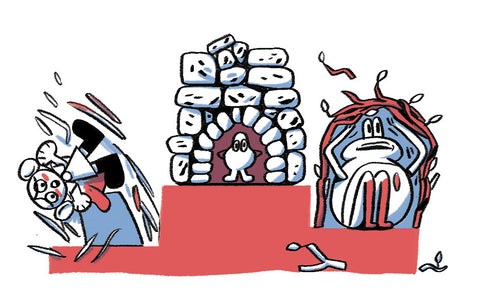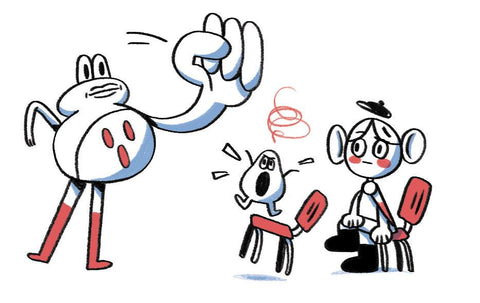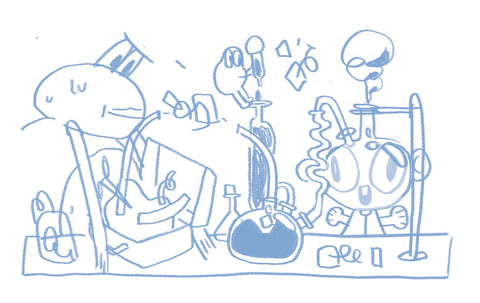I used to believe that I designed best when I worked alone.
Back when I worked at Code Computerlove. I built 'The Higher Lower Game' with Tristan Ashley and Gareth Evans. A side project which pitted Google search volume data against itself. We moved fast and iterated quickly - and we made something we were proud of.
No one could've predicted what happened next
The app went to number one in the App Store, and subsequently was played by millions of times thanks to the YouTube effect.
Looking back, more people in the process would've probably slowed us down.
We had no one interfering with our vision. No stakeholders or clients making asinine requests or suggestions. It was all about creating a fun experience for the player.
But as its success and revenue grew, so did the agency's interest in keeping it that way. The team expanded, release times slowed - and inevitably the quality waned.
I took the stance that "more people = bad".
After working at Code, I went to the BBC. I found myself working in big teams, where you would think my "more people = bad" stance would've been reinforced.
And you'd be right.
Creating and releasing valuable software in most large organisations is akin to moving mountains.
90% of the work is managing people and everything that comes with them: their agendas, egos, career aspirations and of course, misguided design opinions.
Throw in an off-shore development team with a language barrier, and you've got the ideal environment for excellent product design to be difficult for the solo-minded designer.
One day I came across Jared Spool's "everyone is a designer" adage, and initially scoffed.
Spool spoke about how a professor had created two cohorts of lab rats.
One cage labelled "dumb rats" and the other labelled "smart rats". Though only he knew that the signs were made up. His students, however - took them at face value.
The professor asked his students to conduct intelligence tests on the rats.
Time and time again - the smart rats won out. The dumb rats really were stupid, by the student's comparison.
This was not an experiment on the rats, as you can see - rather on the students themselves. It's a fascinating experiment that shows how your expectations can actually change behaviour.
After hearing this story, my perspective on design changed completely.
If you expect people to be designers, they will be. Anyone that has an influence on the design, in any aspect - is by virtue, a "designer".
Working in these large teams with this new mode of thinking has instilled something new and profound in me:
The better you can work with people, the more leverage you have to create products that make a real change in the world.
This is where I believe the art of facilitation becomes one of the most important skill to have as a designer in a product team.
Facilitation simply means "to make easy".
Making the design process easy for your team gives you:
- stakeholders that value research over their own opinion, which means less friction to create better products for users
-
diverse teams that create better products
- a shared understanding, which reduces communication overhead, which means fewer meetings, documentation and email.
This inclusive philosophy is what has driven me to create Workshop Tactics.
A way to make it easier for designers, researchers and product managers to guide their teams through the design process.
"If you want to go fast, go alone. If you want to go far, go together."
- An ancient probably-not-African proverb








